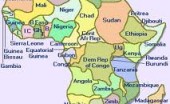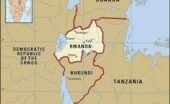Re Ian Bremmer 'Could third-party candidates upend the 2024 US election?' 3 April The current political movement in the USA…
Sarkozy’s List of Successes
Written by Diana Thebaud Nicholson // July 23, 2008 // Europe & EU, Foreign Policy, Government & Governance // Comments Off on Sarkozy’s List of Successes
July 23 2008
(Truthdig) France’s President Nicolas Sarkozy is often dismissed for his flamboyance, but he has quite remarkable accomplishments, including some reforms long sought by the left.
By William Pfaff
PARIS—Publicity can get in the way of reputation. France’s President Nicolas Sarkozy has made himself an international celebrity (with a certain amount of help from his wife), but frequently at the cost of not being taken seriously by anyone but the French (except for those French—there are many—who don’t like him).
The English-speaking world knows about him mostly through what the French disconcertingly insist on calling the “Pipul” press, and people in the European Union governments are as likely as not to be irritated by his flamboyant initiatives and undiplomatic manners as the EU’s current six-month president.
Yet he has quite remarkable accomplishments. The latest has been successful reform of the Fifth Republic constitution, achieved by a significant single vote—a Socialist’s vote—at the Palace of Versailles last Monday.
The reforms strengthen the power and role of parliament in a system dominated in the past by the president. They include provisions increasing the number of supervisory parliamentary commissions holding the government accountable, increasing parliamentary oversight of foreign military operations, and installing a form of parliamentary Question Time.
The president is limited to two successive five-year terms, is given the right to address Parliament directly and is deprived of the ability to force a measure through Parliament by using a form of confidence vote. Individuals are now given the right to seize the courts directly on a constitutional issue.
Many of these reforms have been demanded by the left for years, but the Socialists, in a display of spite, refused to support Sarkozy, except for the former Socialist culture minister, Jack Lang, who supplied the one additional vote essential to the constitutional reforms’ passage.
The Socialists’ spiteful behavior was revenge for Sarkozy’s success in changing the national political balance by adroitly bringing about the implosion of their party. He did this by naming prominent figures from the left to his own government, and by compromising on important issues of contention, thus setting Socialist factions and party “currents” at odds. The Socialist Party will hold a unity convention in the fall, but the divisions are likely to prove permanent, as they are, fundamentally, ideological issues.
Sarkozy has also disarmed major tensions on the French social scene. Instead of direct confrontation with the unions, he has approached the union leadership in a collegial way, looking for cooperation.
France’s unions have not been very strong for years, contrary to the widespread foreign impression. They survive mainly in government administrations and in formerly state-owned companies. This is a legacy of postwar France, a period when the large and Soviet-subsidized French Communist Party was thought capable of provoking insurrection.
(Stalin, incidentally, always opposed such an action, expecting that the Communists would be crushed by the Western allies, whose armies were still in Europe).
The earliest French postwar governments cautiously bought the Communists off with positions in state administrations and state-owned enterprises. They got important quasi-official posts of influence or control in social insurance administrations. In some industries, they controlled social services, summer vacation camps and job policies. Between complacent employer groups and the Soviet Embassy, a great deal of black money was sloshing about. Some of this has continued until quite recently.
The union leadership today knows that organized labor is weak and that the unions are usually unrepresentative of the work force, as union elections show. In recent years, there has been a drift toward moderate leadership, with some minority radicalization. Sarkozy has successfully capitalized on this situation. He has obtained an agreement for minimum service on public transport during strikes—the unions’ main source of pressure—and is slowly obtaining agreements on other changes, including educational reform, which the teachers’ unions resist.
His recent and dramatic diplomatic success was in easing Syria out of its isolation and into resuming possibly fruitful communication with Lebanon and, through intermediaries, with Israel.
Syrian President Bashar al-Assad and Israel’s President Ehud Olmert affected not to see one another as they took part in the huge conference Sarkozy arranged in Paris to launch his latest project, a “Union of the Mediterranean,” which would rework and expand the humble Barcelona Pact for Mediterranean cooperation and development that was adopted by the European Union 13 years ago, and been largely neglected since.
A note of historical irony was supplied when officials representing the 43 countries at the conference ended their stay by attending France’s annual Fourteenth of July military parade, including the Foreign Legion, with its fife and drum band setting the legion’s slow and deliberate marching pace (supposedly taken from the Brandenburger mercenaries who first trained them in 1831).
As usual, the legion detachment was the most popular unit in the parade, led by its richly bearded military engineers, wearing leather aprons and carrying axes to recall their 19th-century role in building roads and dams in France’s newly annexed Algeria (one of the states represented at the conference). The legion’s last role in Algeria was to fight against Algerian independence, and providentially lose.


